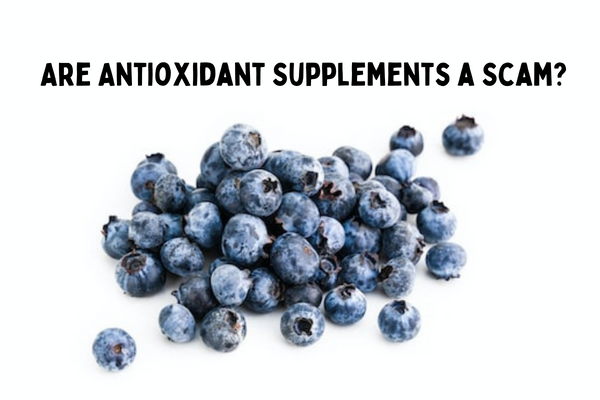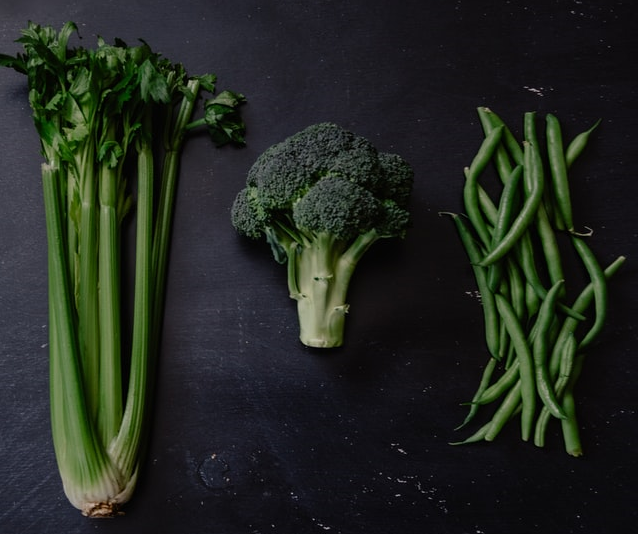Antioxidant Supplements are a Scam

Antioxidant Supplements are Popular: Here is Why You May be Wasting Your Cash
Pop into any pharmacy or online supplement store and you’ll find antioxidants for sale.
They range from extracts from plants, to synthetic compounds. Examples are vitamin C, vitamin E, beta carotin, quercetin and selenium.
The idea of reducing free radicals and protecting your cells from oxidation is alluring. After all, who would want those evil free radicals damaging their cellular components or even DNA?
Unfortunately, taking antioxidant supplements does not improve your health outcomes.
Large scale clinical trials have found no measurable effect on all-cause mortality. Worryingly, trials have found that taking single antioxidant supplements increases your risk in some super-scary health categories.
This page lists the problems with antioxidants.
After those problems you’ll find how to protect your cells from free radicals via a healthy, balanced diet instead.

Problems with Antioxidants #1: Absorption
When you consume antioxidant compounds with your food, they are part of a mix of fats, sugars, protein and fibre.
This allows for absorption into the bloodstream at a measured rate.
When you take a supplement containing antioxidant, you’ll lose between 97% and 98% of the effects. The body is not set up to absorb these substances as single compounds. Quercetin, popular antioxidant found in apples, blueberries and capers is a perfect example. It is not absorbed well, and the metabolism (breakdown into components) has already started in the small intestine.
Antioxidants are a Scam #2: Natural Forms vs Chemical Forms
Those vitamins and flavonoids are not single compounds.
In many cases they are names given to a family of subtly different chemicals. Differences as subtle as a single bond or atom will completely change the effect at a cellular level. The complexity of the pathways in and between our cells then magnify those differences.
Vitamin E is an example.
There are eight naturally occurring forms of Vitamin E. When you take a supplement, you only get one of them.
Risks from Antioxidants: Natures Balance vs One or Two Types
Many compounds have antioxidant properties.
Add to this the compounds inside those delicious fruits and vegetables which benefit our immune system, skin and gut microbiome.
When you take an antioxidant supplement, you significantly boost a single type – for example vitamin C. With one compound dominating, the delicate natural balance of antioxidants playing specific roles in our cells is upset. You may end up doing more harm than good, with the myriad subtle interactions still the subject of clinical research.

Antioxidants Break Down Fast
To get much protection from the small percentage of antioxidants you get via those supplements, you’d need to swallow them all day long.
The speed at which single versions of these molecules breaks down is fast. A little over 3 hours is enough to metabolise half of many popular supplements. Food-based versions enter and leave the blood stream slower.
Careful with Antioxidants: Risk of Serious Conditions
Large scale trials with supplements of single antioxidant compounds revealed some startling results.
In one study, these supplements were statistically linked to an increase in haemorrhaging stroke. In another, smokers were found to be at greater risk of developing lung cancer after taking high-dose vitamin E supplements.
When you combine that with the lack of evidence that extra antioxidants in pill form increase health outcomes in large population trials, you might pause for thought.
Good News: Getting Antioxidants Through Food is Easy
Antioxidants play a key role in our health. If you are stressed, or have an unhealthy diet, the amount of oxidation in every cell will skyrocket – overwhelming your repair and natural mop-up systems for those cells.
Many delicious fruits and vegetables are packed with antioxidants. They also contain fibre, anti-inflammatory substances and more.
Here are some examples:
- Broccoli
- Apples
- Blueberries
- Cranberries
- Plums
- Capers
- Kale
- Buckwheat
Selling supplements is big-business. With a little knowledge about getting the right mix of vitamins and minerals via a healthy diet, you can save cash – and reduce your risk of adverse reactions too.
More Popular Pages this Month:
- What is the Minimum Amount of Exercise to Get Healthy?
- The new CT600 Cross Trainer from JLL
- What is Metabolic Flexibility?
- The Dangerous Myth of Negative Calorie Foods
- Seeds, Health and Fitness